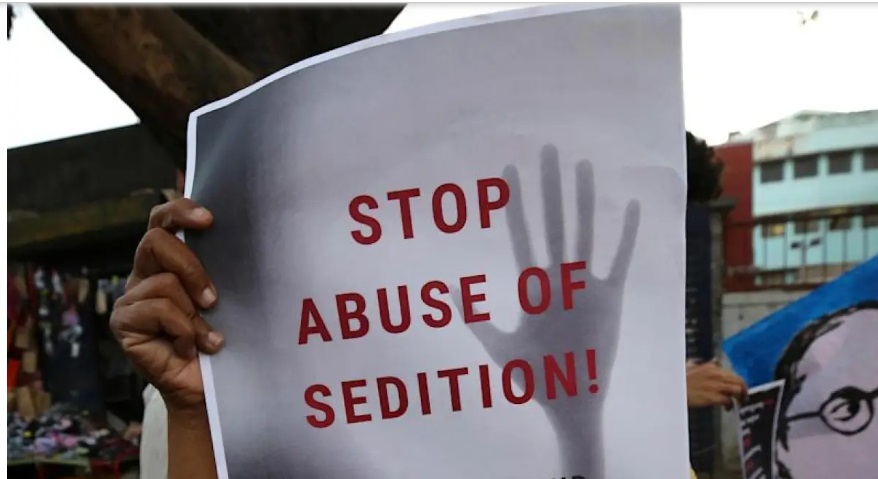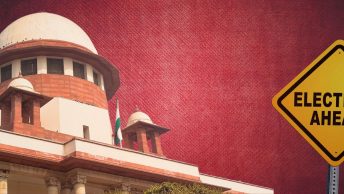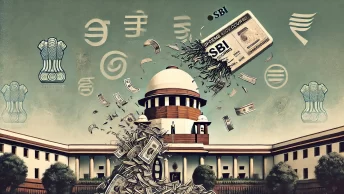In part two of the blog, (part I published here), the authors argue how IPC doesn’t have a presumption of constitutionality, being a colonial law, and hence deserves a examination on its prima facie text, instead of a simple reading down.
In this section, we argue that there exists no PoC for colonial laws. We substantiate this through both; normative justifications as well as the recent doctrinal affirmations of those normative principles.
a. Normative Grounds
In the previous two sections, we have established that firstly, the constitutionality of sedition is contingent on Section 124A being read down and; secondly, reading down is permissible only where the impugned provision enjoys a PoC.
Therefore, to prove that sedition is no longer constitutional, the burden is only to show that Section 124A does not enjoy a PoC. Now, as discussed earlier, PoC rests on two underpinnings – that the legislature understands (i) the needs of its people and (ii) its constitutional limitations. The authors agree that these reasons hold for post-constitutional laws, however, we argue that the same do not apply to colonial legislations, notwithstanding earlier judicial pronouncements which assumed PoC for pre-constitutional enactments. This is because both of the aforementioned rationales to have a PoC get vitiated for pre-constitutional laws. As noted in Navtej Johar v. UOI [361], for (i), it does not hold simply because the draftee of IPC was not a validly-elected representative government, and therefore cannot be presumed to recognize and legislate as per the needs of the people. For (ii), the absence of the constitution and unfettered colonial power indicates that the drafter cannot be presumed to have abided by any limitation equivalent to Fundamental Rights, basic structure, or other constitutional controls on the legislature. Therefore, there exist strong normative reasons to deny PoC to pre-constitutional laws.
Supporters of PoC for colonial laws argue that since Article 372 allows them to ‘continue in force’ post-Independence, they have the force of PoC. The fact that the government hasn’t ‘repealed’ the colonial provisions, in their view, provides sufficient reason to allow colonial laws PoC on the same terms as post-constitutional laws. However, this argument is flawed for several reasons. Firstly, it presumes silence as assent. Merely because no legislature was able to actively repeal the same, does not mean it meets the criteria under (i) or (ii). Secondly, the absence of parliamentary procedure including any substantive debate on the provisions makes them less representative, even if inaction is assumed to mean assent.
b. Precedential Grounds
The normative position of pre-constitutional laws not having a PoC has recently been supported by the Supreme Court in landmark judgments of Navtej Johar [361] and affirmed by Justice Indu Malhotra in Joseph Shine v. UOI [270]. A potential counter-argument can be that Navtej and Joseph Shine are per incuriam for ignoring the 7-judge bench verdict of Madhu Limaye v. SDM. In this case, Justice Hidayatullah had passingly remarked that “We do not start with the presumption that, being a pre-constitution law, the burden is upon the State to establish its validity” [11]. However, this remark in Madhu Limaye was purely obiter dicta and not the ratio. This is because PoC was not relied on in the ultimate decision in Madhu Limaye, which would have yielded the same result even without the remark on PoC. Being obiter, it cannot be argued that Madhu Limaye has binding value on Navtej or any future bench which will be constituted to decide the validity of S. 124A.
As the position taken in both Madhu Limaye and the recent cases doesn’t find its place in the ratio of the verdicts, it will not be difficult to say that there is no ‘established’ position in Indian jurisprudence on this question. Following from this, we argue that the future bench constituted to hear the question of sedition, should give priority to the Navtej over Madhu Limaye because of two reasons – firstly, Navtej provides a cogent reasoning for its position whereas Madhu Limaye does not and secondly, Navtej is more recent as compared to Madhu Limaye. Moreover, the entire trend of other cases post-Madhu Limaye have also recognized the absence of PoC in pre-constitutional laws (Navtej Johar, Joesph Shine, Anuj Garg). For instance, Anuj Garg v. UoI recognized that for pre-constitutional laws, the burden of proof would be on the state, which is essentially a negation of the PoC [20].
Addressing Limitations
It is acknowledged that there may be valid reasons to uphold the constitutionality of the law by reading down, other than a PoC. It is necessary to make a clarification in this case. The other reasons to adopt an interpretation that upholds the law (such as say, judiciary’s duty to not leave gaps or restraining from excessive judicial review) are based on the discretion of the court, where it must weigh the reasons to adopt one interpretation against the other. With PoC however, it was an obligation on the court. With that obligation gone, the duty to necessarily interpret the law in a way that upholds its constitutionality is no longer present. Rather, for each law, the court must determine on the basis of the facts of each case to pick its interpretation. The reasons to adopt a law upholding interpretation (consistency, not leaving gaps etc.) would have to be weighed against the reasons to choose a stricter approach (setting an example for the legislature to disincentive future rights-encroaching laws, avoiding a distorted interpretation etc.). Therefore, without a PoC, any obligation to obey the law withers away.
Moreover, in this context, it is necessary to clarify the scope of this piece, which is restricted to the decision in Kedarnath. There, the decision was necessarily based on a PoC. Without PoC, there would simply be no obligation to interpret it in a way that upholds the meaning of the law. True, hypothetically there could be other reasons for that interpretation but no such reasons were given. If the court is deviating from a textual reading, it must provide a very strong rationale for interpreting the law in that way. Rather than looking to it as broad/narrow interpretations, one can consider it as simply striking down a prima facie unconstitutional provision, because there is no obligation to read down the law. If for some reason, the court intends on necessarily reading down the provision, it must provide reasons for the same, and balance them against the reasons for not reading down a provision.
Conclusion
To sum up, the maintainability of Section 124A rests on it being read down, which we highlighted is contingent on there being a PoC for the impugned legislation. Next, we showed why IPC, being a pre-constitutional legislation, does not enjoy a PoC. Because of the absence of PoC, the court cannot impute a favourable intention to the legislature, and hence cannot read it down. Since reading down is now impermissible, the court would have to examine Section 124A on its prima facie text.
With no obligation upon the courts to maintain its constitutionality, Section 124A should be struck down for being patently unconstitutional as it goes far beyond the limits placed in Article 19(2). The same was also acknowledged by the Supreme Court in Kedarnath [25]. To impute a benign intention to the framers and essentially redrafting the law would go beyond the mandate of the judiciary and violate the doctrine of separation of powers, as this falls within the domain of the legislature. This logic applies more squarely in the case of Section 124A which not only involves textually deleting some words but also importing two very different words which weren’t in the original legislation – ‘violence’ and ‘public disorder’. When the law is clearly unconstitutional, it shall be struck down in the absence of a strong obligation to read down, such as the PoC, which we have argued against existing for Section 124A. Any effort by the courts to preserve its constitutionality now, would be to breach the doctrine of separation of powers and unnecessary. Instead of the courts, the burden should be left to the legislature – which always has an option to redraft the law in case its intention is to actually read it in the narrow fashion.
While the nexus between reading down and PoC has critical implications on sedition, the aspect of PoC for pre-constitutional laws itself has significant implications. Providing a PoC to pre-constitutional laws has historically been a shield to several legislations which have restricted social change. Most recently, it was used in RIT Foundation v. UOI by Justice Hari Shankar to uphold the validity of the Marital Rape Exception in IPC. While a normative-legal analysis of that is beyond the scope of this paper, the authors want to emphasize the relevance of this issue as not just limited to sedition, but a whole wealth of pre-colonial legislations.
Siddhant Pengoriya and Sukarm Sharma are second-year undergraduate law students at the National Law School of India University, Bangalore.
Edited by Utkarsh Mani Tripathi and published by Suhani Paruvelly.






Thank you for your sharing. I am worried that I lack creative ideas. It is your article that makes me full of hope. Thank you. But, I have a question, can you help me?